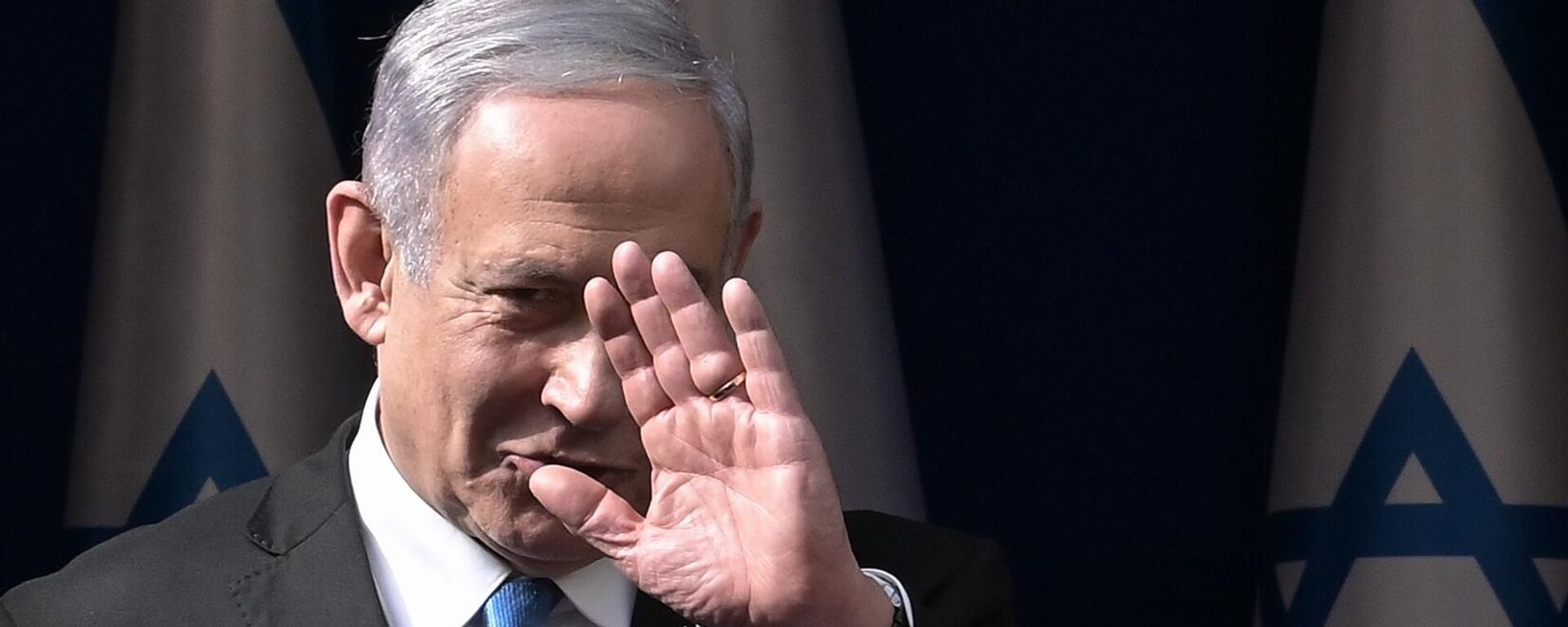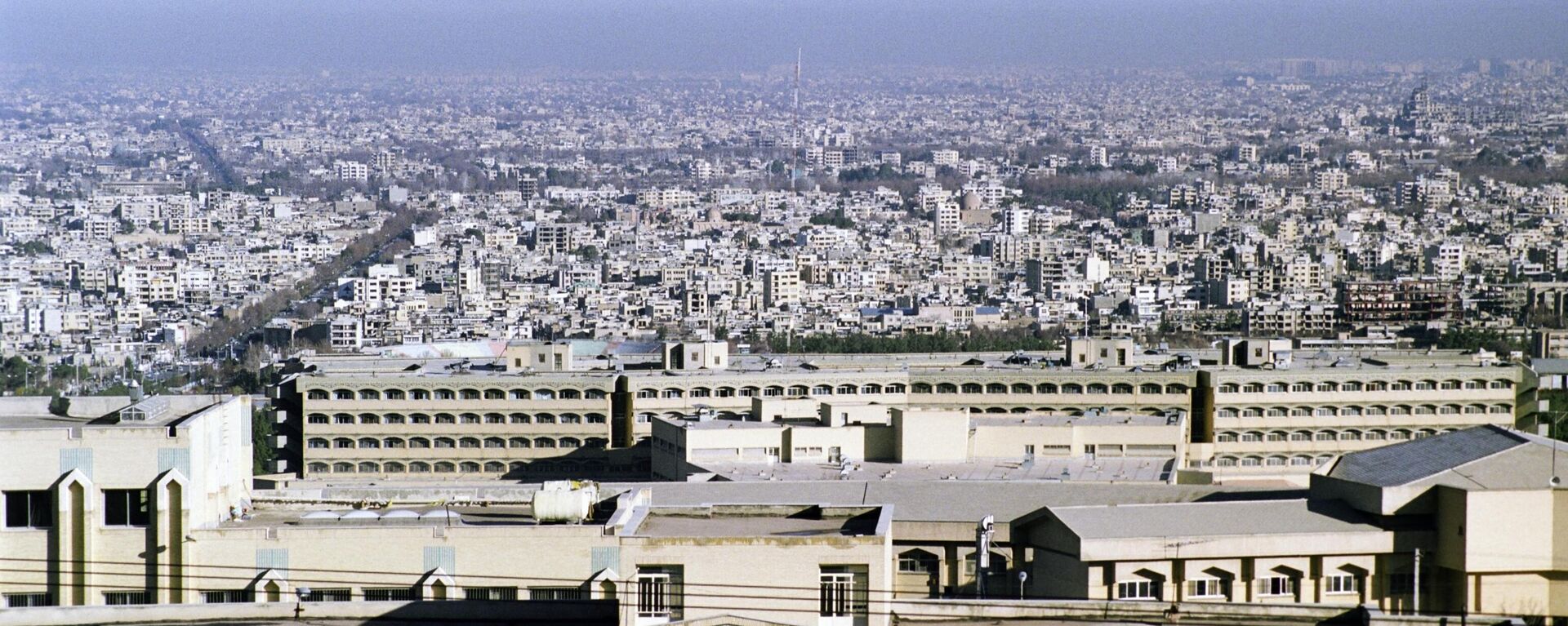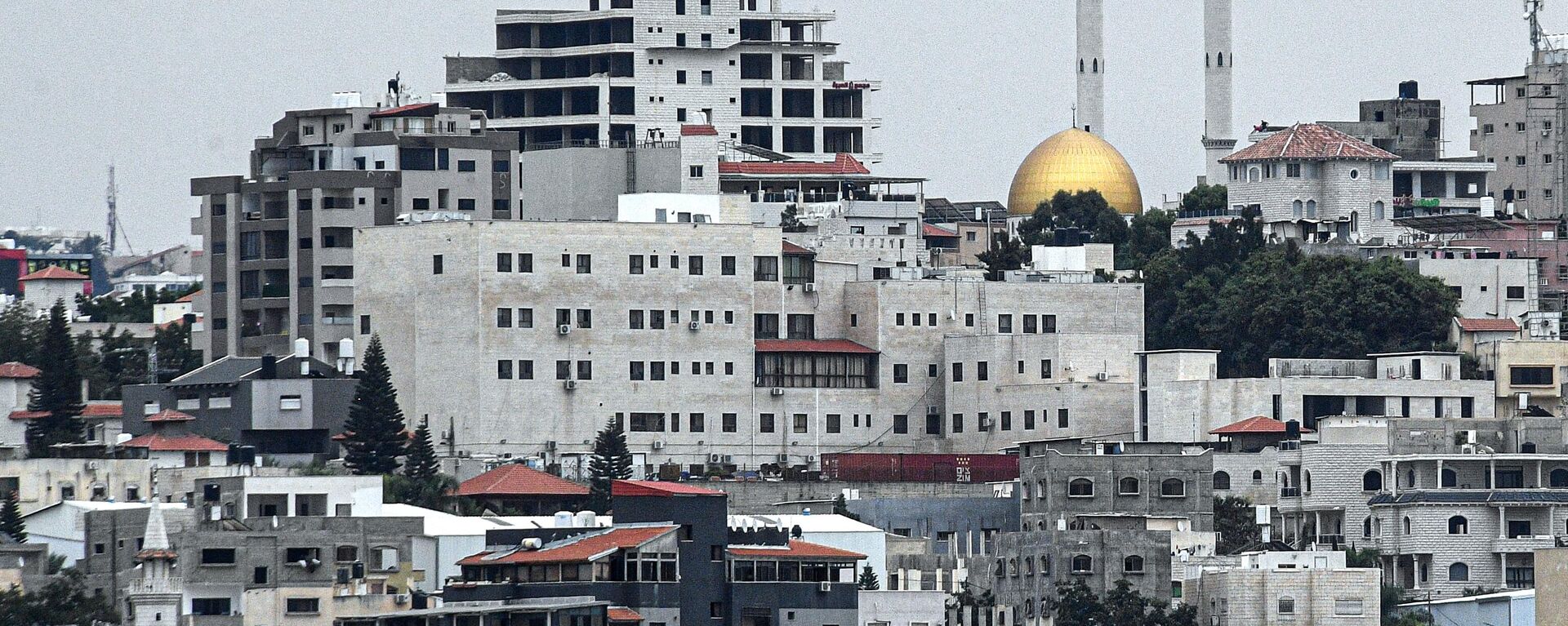https://sputnikglobe.com/20240419/israel-cant-afford-escalation-with-iran-and-gaza--1118019349.html
Israel Can't Afford Escalation With Iran and Gaza
Israel Can't Afford Escalation With Iran and Gaza
Sputnik International
The Gaza war and tensions with Iran have taken a toll on Israel's economy with major rating agencies having downgraded the Jewish state's rating by one notch warning that cuts may go deeper if ongoing conflicts escalate.
2024-04-19T18:46+0000
2024-04-19T18:46+0000
2024-04-19T19:44+0000
israel
analysis
middle east
iran
standard & poor (s&p)
hamas
iran-israel row
palestine-israel conflict
economy
tel aviv
https://cdn1.img.sputnikglobe.com/img/07e8/04/13/1118020102_0:2:3072:1729_1920x0_80_0_0_8e1768f4cfcbe91dac2ef60eb09391e9.jpg
S&P Global Ratings downgraded Israel's credit rating from 'AA-/A-1+' to 'A+/A-1' as its economy slowed and geopolitical risks increased, marking its latest demotion since Moody’s rating relegation in February.The Gaza war, amplified by the escalation in tensions between Tel Aviv and Tehran, has taken its toll on the Israeli economy since October 2023. In the fourth quarter of 2023, it contracted a whopping 20.7%, far exceeding the initial projection of a 10% slump. The nation's debt increased by $43 billion last year, $22 billion of which was accumulated since the beginning of the hostilities. Israel's national currency, the shekel, has depreciated by more than 4% against the dollar in 2024.How is the Israeli Economy Weathering the War?"The Israeli economy has shown remarkable resilience," argued Professor Avi Weiss, president of the Taub Center for Social Policy Research in Israel and professor of economics at Bar-Ilan University, while speaking to Sputnik. "After absorbing the initial shock, the labor market is steadily returning to normalcy. Even the construction industry is returning to function (indicating that the Israeli Arabs are back to work). The number of men on reserve duty has been steadily declining and currently, out of the labor force, it numbers about 70,000. This is still high, but half the number registered in the initial phases."Dr. Steven Terner, the manager of Terner Consultancy, a leading geopolitical and business consultancy based in New York, holds an opposite stance: "The Israeli economy has not been resilient," Terner told Sputnik. "It has suffered immensely from the war.""The Israeli economy ground to a half when the Gaza war began because virtually the entire country was mobilized for the war effort. … Hundreds of thousands of Israelis were displaced in October, and many remain so to this day," the official underscored. "Those people are unable to work or pay their bills, including their mortgage and rent payments for the homes they evacuated in northern and southern cities six months ago."Terner added that while "the tourism industry, a major source of revenue, was destroyed by the Gaza war as well, it will recover eventually. But [it] will not begin to do so until the war is over."The analyst further pointed out that foreign investment to Israel had also decreased in 2023. Indeed, in the first quarter of 2023, foreign direct investment in Israel fell by 60% over political and social turmoil caused by the Israeli government's judicial overhaul. The Gaza war has only exacerbated concerns with regard to Israel's future growth. All in all, foreign direct investments went down by 28.7% in 2023, compared to 2022, according to the Central Bureau of Statistics (CBS).S&P expects Israel's general government deficit to grow to 8% of GDP in 2024, with net general government debt peaking at 66% of GDP in 2026. The rating firm also projects Israel's Gaza war will continue throughout 2024. S&P indicated it will review the nation's rating once again on May 10, suggesting it could make deeper cuts if ongoing conflicts involving Tel Aviv widen.How Could Military Escalation Backfire on the Israeli Economy?Remarkably, the agency's decision to cut Israel's rating by one notch came before the Jewish state's apparent Friday attack against Iran. Having conducted its counterstrike on April 13 to avenge the death of two top Iranian generals in Damascus, Tehran warned that even the slightest Israeli attack would be met with strong retaliation.However, with the risk of escalation lingering, the future of the Israeli economy appears to be hanging in the balance. Continuous tit-for-tat attacks between Iran and Israel would be a disaster for the Israeli economy, according to Benjamin Bental, professor emeritus of economics at the University of Haifa."If you think about every couple of months or every month or every week or whatever - a rocket attack from Iran, which requires overnight expenditure of something like $1 billion in defense in one night, that is, of course, not sustainable," Bental told Sputnik, suggesting that this is an unlikely scenario.Israel's continuous standoff with Hamas, Hezbollah and the Houthis is also fraught with risk of exhaustion for the Jewish state economy."The optimistic scenario includes the repatriation of the hostages, a civil administration in the Gaza Strip that replaces the Hamas, a political arrangement with Lebanon/Hezbollah, a balance of deterrence with Iran and a political agreement with Saudi Arabia," suggested Weiss. "If this happens, Israel will be able to gradually reduce its military expenditures and restore its standing in the international capital markets. This means returning to the path that was abruptly disturbed on October 7."Resolution of Palestinian Issue is Key to Stop WarRegardless of when exactly the Gaza war will eventually come to a close, the damage to the Israeli economy and society has already been done, according to Rodney Shakespeare, a visiting professor of binary economics at Trisakti University in Jakarta, Indonesia."The conflict will not be over until there is a resolution of the Palestinian issue," Shakespeare told Sputnik. "Israel is now an unstable entity whose existence is predicated upon the genocidal destruction of others – and most of the world is now aware of this."For his part, Terner believes that a political overhaul in Israel that brings into power more moderate and centrist forces could be a possible solution to the unfolding crisis and the Palestinian issue.
https://sputnikglobe.com/20240417/israel-in-catch-22-damned-if-it-retaliates-against-iran-and-damned-if-it-doesnt--1117983997.html
https://sputnikglobe.com/20240419/april-19-attack-on-iran-who-is-responsible-for-it-1118013892.html
https://sputnikglobe.com/20240419/why-us-veto-on-palestines-full-un-membership-bid-isnt-surprising-1118012721.html
israel
iran
tel aviv
tehran
Sputnik International
feedback@sputniknews.com
+74956456601
MIA „Rosiya Segodnya“
2024
News
en_EN
Sputnik International
feedback@sputniknews.com
+74956456601
MIA „Rosiya Segodnya“
Sputnik International
feedback@sputniknews.com
+74956456601
MIA „Rosiya Segodnya“
iran vs israel, iran strikes israel, iranian attacks on israel, israel threatens iran, israel’s missile attack on iran, iran israel standoff, iran israel row, recent attcks in the middle east, middle east military escalation, iran’s role in the middle east, alliances in the middle east, iran strikes on israel, iran attacks israel, iran israel row, iran israel hostilities
iran vs israel, iran strikes israel, iranian attacks on israel, israel threatens iran, israel’s missile attack on iran, iran israel standoff, iran israel row, recent attcks in the middle east, middle east military escalation, iran’s role in the middle east, alliances in the middle east, iran strikes on israel, iran attacks israel, iran israel row, iran israel hostilities
Israel Can't Afford Escalation With Iran and Gaza
18:46 GMT 19.04.2024 (Updated: 19:44 GMT 19.04.2024) The Gaza war and tensions with Iran have taken a toll on Israel's economy, leading major agencies to downgrade the Jewish state's credit rating by one notch with warnings that further cuts may occur if the ongoing conflicts escalate.
S&P Global Ratings downgraded Israel's credit rating from 'AA-/A-1+' to 'A+/A-1' as its economy slowed and geopolitical risks increased, marking its latest demotion since Moody’s rating relegation in February.
The
Gaza war, amplified by the escalation in tensions between
Tel Aviv and Tehran, has taken its toll on the Israeli economy since October 2023. In the fourth quarter of 2023, it contracted a whopping 20.7%, far exceeding the initial projection of a 10% slump. The nation's debt increased by $43 billion last year, $22 billion of which was accumulated since the beginning of the hostilities. Israel's national currency, the shekel, has depreciated by more than 4% against the dollar in 2024.
How is the Israeli Economy Weathering the War?
"The Israeli economy has shown remarkable resilience," argued Professor Avi Weiss, president of the Taub Center for Social Policy Research in Israel and professor of economics at Bar-Ilan University, while speaking to Sputnik. "After absorbing the initial shock, the labor market is steadily returning to normalcy. Even the construction industry is returning to function (indicating that the Israeli Arabs are back to work). The number of men on reserve duty has been steadily declining and currently, out of the labor force, it numbers about 70,000. This is still high, but half the number registered in the initial phases."
"As a result, the Israeli economy is expected to grow at 1.5-2% in 2024, and over 5% in 2025. Significantly lower than 'normal,' 3.5%, in 2024, but right on target over the two year period. In addition, it maintains a more or less constant per-capita level in 2024," the professor highlighted, admitting, however, that a lot depends on whether the military situation will stabilize, including Israel-Iran tensions.
Dr. Steven Terner, the manager of Terner Consultancy, a leading geopolitical and business consultancy based in New York, holds an opposite stance:
"The Israeli economy has not been resilient," Terner told Sputnik. "It has suffered immensely from the war."
"The Israeli economy ground to a half when the Gaza war began because virtually the entire country was mobilized for the war effort. … Hundreds of thousands of Israelis were displaced in October, and many remain so to this day," the official underscored. "Those people are unable to work or pay their bills, including their mortgage and rent payments for the homes they evacuated in northern and southern cities six months ago."
Terner added that while "the tourism industry, a major source of revenue, was destroyed by the Gaza war as well, it will recover eventually. But [it] will not begin to do so until the war is over."
The analyst further pointed out that foreign investment to Israel had also decreased in 2023. Indeed, in the first quarter of 2023, foreign direct investment in Israel fell by 60% over political and social turmoil caused by the Israeli government's judicial overhaul.
The Gaza war has only exacerbated concerns with regard to Israel's future growth. All in all, foreign direct investments went down by 28.7% in 2023, compared to 2022, according to the Central Bureau of Statistics (CBS).
"Considering the security risks of the war, the international unpopularity of the Israeli military’s heavy-handedness in Gaza, and the ongoing strikes and protests in Israel over numerous political issues, foreign investment will not be coming in for a while," Terner projected.
S&P expects Israel's general government deficit to grow to 8% of GDP in 2024, with net general government debt peaking at 66% of GDP in 2026. The rating firm also projects Israel's Gaza war will continue throughout 2024. S&P indicated it will review the nation's rating once again on May 10, suggesting it could make deeper cuts if
ongoing conflicts involving Tel Aviv widen.
How Could Military Escalation Backfire on the Israeli Economy?
Remarkably, the agency's decision to cut Israel's rating by one notch came before the Jewish state's apparent Friday attack against Iran. Having conducted its
counterstrike on April 13 to avenge the
death of two top Iranian generals in Damascus, Tehran warned that even the slightest Israeli attack would be met with strong retaliation.
On April 19, an Iranian base near the city of Isfahan was subjected to a drone strike. As per EU and US governmental sources, the attack was conducted by Israel.
In response, Tehran said the drones were successfully destroyed and signaled it would not retaliate "immediately."
However, with the risk of escalation lingering, the future of the Israeli economy appears to be hanging in the balance. Continuous tit-for-tat attacks between Iran and Israel would be a disaster for the Israeli economy, according to Benjamin Bental, professor emeritus of economics at the University of Haifa.
"If you think about every couple of months or every month or every week or whatever - a rocket attack from Iran, which requires overnight expenditure of something like $1 billion in defense in one night, that is, of course, not sustainable," Bental told Sputnik, suggesting that this is an unlikely scenario.
Israel's continuous standoff with Hamas, Hezbollah and the Houthis is also fraught with risk of exhaustion for the Jewish state economy.
"The optimistic scenario includes the repatriation of the hostages, a civil administration in the Gaza Strip that replaces the Hamas, a political arrangement with Lebanon/Hezbollah, a balance of deterrence with Iran and a political agreement with Saudi Arabia," suggested Weiss. "If this happens, Israel will be able to gradually reduce its military expenditures and restore its standing in the international capital markets. This means returning to the path that was abruptly
disturbed on October 7."
"Any deviation from this scenario will carry a cost," the professor warned. "Specifically, continued tensions along the northern border will prevent restoration of that area and maintain the high geopolitical uncertainty. This will mean high security costs and a continued high level of reserve duty. As a consequence, Israel will not be able to realize its potential and economic growth will be low, meaning a stagnating standard of living for a considerable period."
Resolution of Palestinian Issue is Key to Stop War
Regardless of when exactly the Gaza war will eventually come to a close, the damage to the Israeli economy and society has already been done, according to Rodney Shakespeare, a visiting professor of binary economics at Trisakti University in Jakarta, Indonesia.
"The conflict will not be over until there is a resolution of the Palestinian issue," Shakespeare told Sputnik. "Israel is now an unstable entity whose existence is predicated upon the genocidal destruction of others – and most of the world is now aware of this."
For his part, Terner believes that a political overhaul in Israel that brings into power more moderate and centrist forces could be a possible solution to the unfolding crisis and
the Palestinian issue.
"Assuming the next government is not an ultra-nationalist coalition led by Benjamin Netanyahu, but rather a centrist coalition led by Benny Gantz, the wheels will be in motion to slowly repair the political issues that are weighing on the economic system," Terner concluded.







